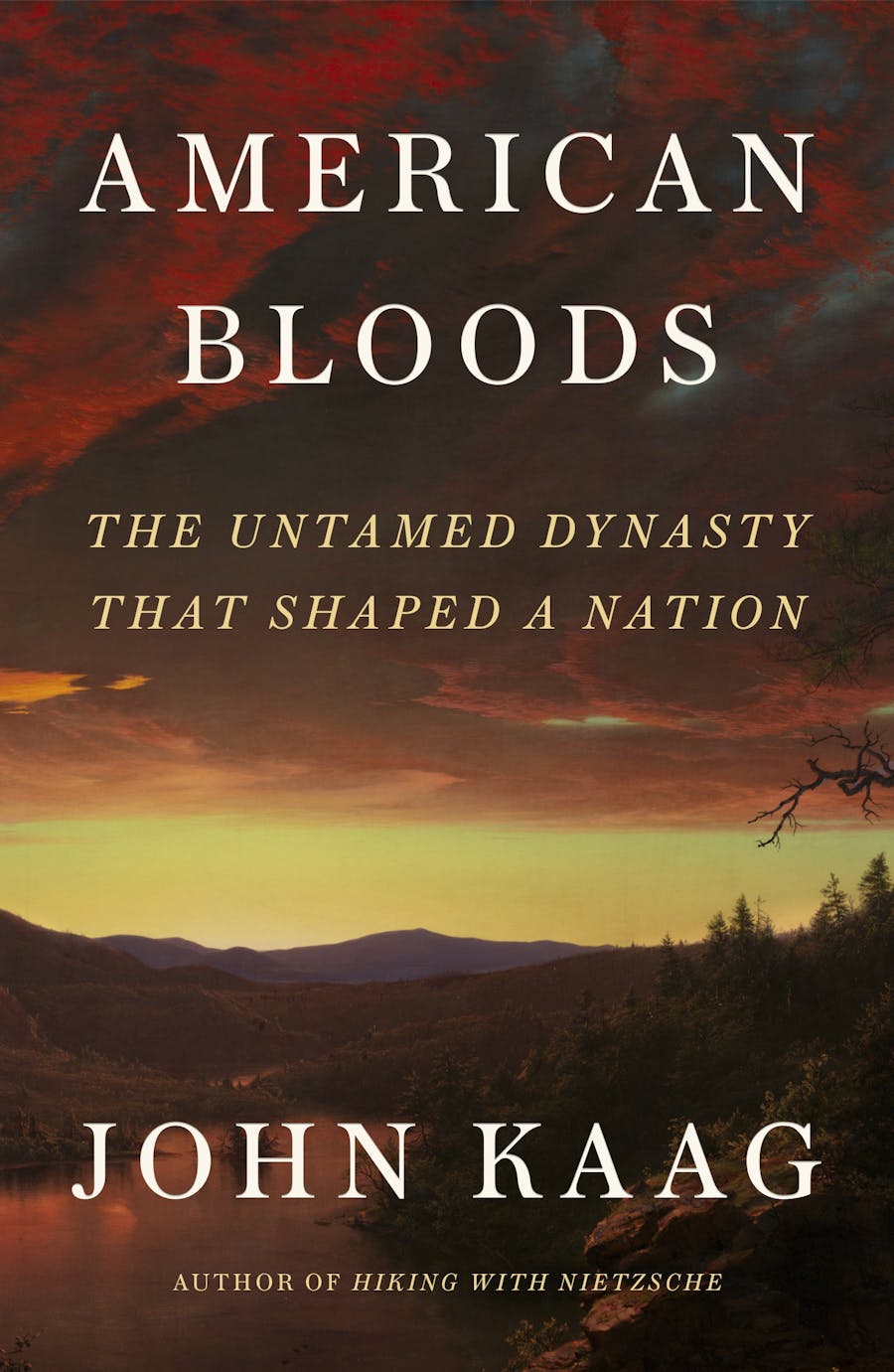Kaag sets out to trace the nation’s growth (and “excruciating growing pains”) as refracted through “one of America’s first and most expansive pioneer families,” whose lineage happens to run straight through his family home. Listed in the index of a privately published genealogy he finds in his house are thousands of Bloods, from Aaron to Zebulon. In addition to Josiah and Thaddeus, Kaag plucks out a handful of others, curious characters born between 1618 and 1838, who found themselves in the thick of roiling history or crossed paths with famous American thinkers.
Kaag makes the case that, “unlike many other more visible or iconic American dynasties” (he mentions the Cabots, Lowells, Astors, Roosevelts), the Bloods
consistently, and with remarkable regularity, reveal a particular frontier ethos: their genealogy tracks what Henry David Thoreau called “wildness,” an original untamed spirit that would recede in the making of America but never be extinguished entirely. The United States may have been founded on “life, liberty, and the pursuit of happiness,” but it was always shot through with something unbalanced, heedless, undomesticated, fearful.
The making of America meant pushing back the frontier, establishing civilization where before, as the Puritan William Bradford testified, there had been “a hideous and desolate wilderness, full of wild beasts & wild men.” Kaag asserts that New England colonials drew a clear, unwavering line between the civilized and the wild, but he believes that the Blood dynasty shared a more complicated ethos: Its members “continually explored life and its extremes,” absorbing the lesson that “human existence was not cleanly demarcated but unshakably wild.”
Hardly alone in wanting, just now, to weigh the risk of mayhem in America, he asks, “What untamed stories lie beneath the skin of our more or less well-functioning society? How persistent is the wildness that once defined our country?” The answers, he warns, won’t be tidy, though he can’t resist assigning conveniently emblematic roles to his small sample of Zelig-like Bloods.
